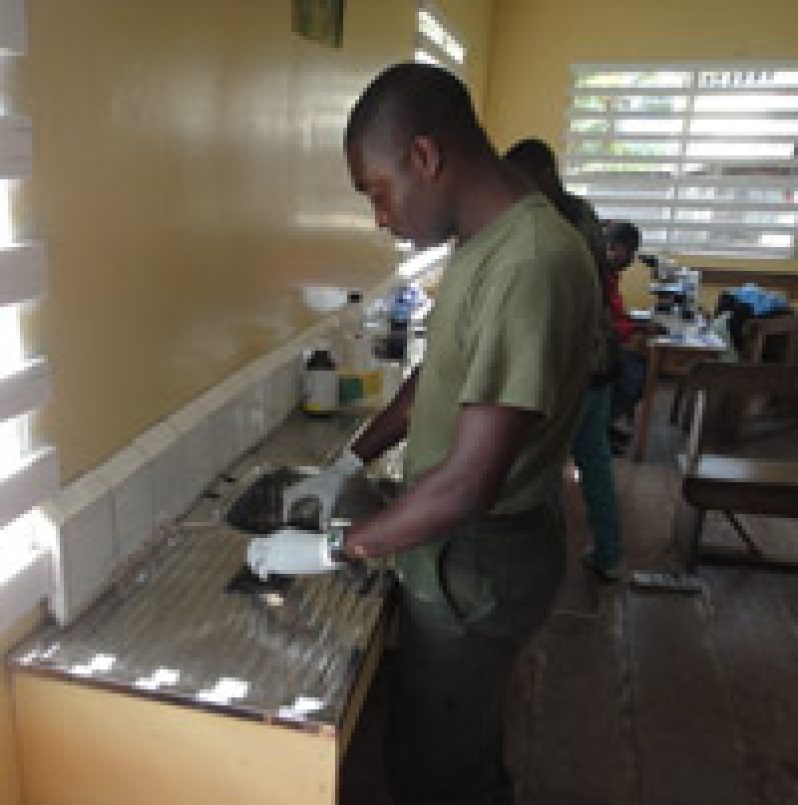THE Vector Control Services Unit of the Ministry of Health will be conducting an emergency malaria outreach programme at Kamarang and the Mazaruni Sub District 2 of Region 7.
 Director of the Vector Services Unit, Dr. Reyaud Rahman, indicated to this publication that the programme would last for at least 28 days, and would have a number of activities which would entail training of personnel in the updated treatment pattern, mass blood smears, and establishing and reviving of malaria councils.
Director of the Vector Services Unit, Dr. Reyaud Rahman, indicated to this publication that the programme would last for at least 28 days, and would have a number of activities which would entail training of personnel in the updated treatment pattern, mass blood smears, and establishing and reviving of malaria councils.
The communities would also be involved in setting up at schools health clubs intended to create awareness of malaria issues pertaining to prevention, treatment, and care of those infected by the disease.
Other activities would see community health workers (CHW) receiving upgraded training in malaria microscopy and the execution of indoor residual spraying and training in the safe use of insecticides.
Training of clinicians would be high on the agenda, since those workers would be exposed to the new approved treatment guidelines.
The distribution of long-lasting insecticidal nets (LLINs) would also form part of the outreach programme. Once cared, these nets, which have a lifetime of about five years, would facilitate the users’ protection in malaria-infected areas.
After the exercise, the training equipment would be handed over to the region to enable continuous execution of activities under the vector control activity plan.
Areas to be visited under the programme are the Kamarang community, Waramadong village and Purina, as the Mazaruni District II area would see visits to Jawalla, Warwatta, Quebanang, Imbaimadai, Kako and Phillipai.
Specific visits to mining locations and operations in all areas of the outreach would also take priority, since increased mining activities are expected to facilitate increased prevalence of malaria attacks.



.jpg)








